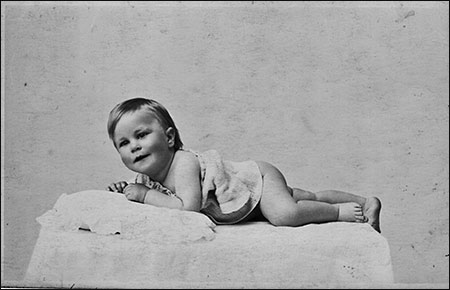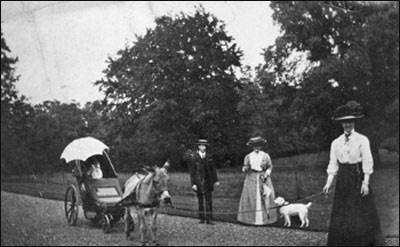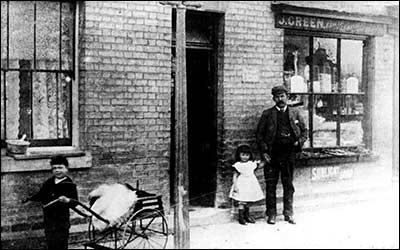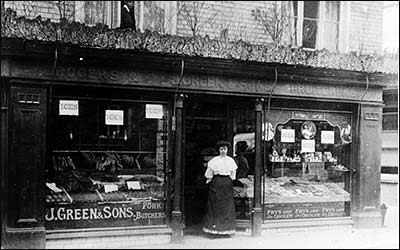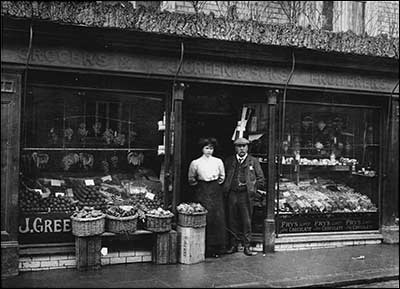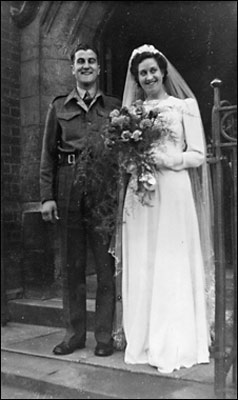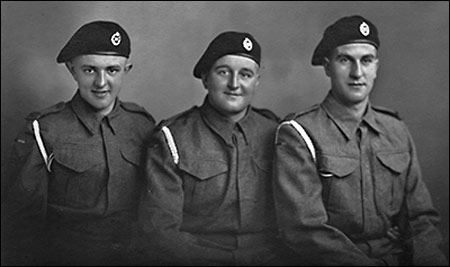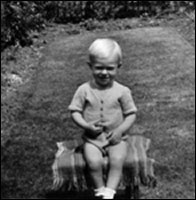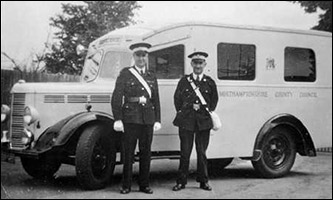|
||||||||||||||||||||
|
Cliff Iliffe - Memories
|
||||||||||||||||||||
|
||||||||||||||||||||
|
|
||||||||||||||||||||
|
When my Dad, Joe Iliffe, first came to Rushden he was employed at the Rushden Hall eventually working up to be the
My earliest memories as a boy at is my first residence in
There were two shops, one was where Nan & Gramp lived above the pork butchers shop, and further along the High Street, near what used to be the West End Club, was another lock up shop which sold fruit and vegetables and sweets. There were a lot of boiled sweets, pear drops and things like that and I think they used to make their own Ice cream.
I went to school at
It seemed as though nearly every street had a shoe factory. Some of the big ones were amazing. Where we lived in
All the factories had buzzers to call the workers to work. If you weren’t there when the buzzer went you were locked out for fifteen minutes. You lost 15 minutes money so you had to get there on time. People went on bikes, walked and there were plenty of buses. Practically everybody came home for dinner because they lived so handy. The buzzer used to go at
At night there were Whist Drives, and we had three Cinemas in the town. We used to have a lot of home entertainment – mainly aggravate each other. I got on alright with all my family really. On Saturdays a lot of the men went to the Rushden Football Ground in
We moved from
The shop at As children we could go into the shop, (I had two brothers Ron & Howard and two sisters Joan & Peg) but we were really kept out when they were serving. As we grew up we had one or two jobs, cleaning up and that sort of thing. I had my training by helping out gradually, and watching Dad. Lots of people came into our shop on their way to work, for sausage rolls or pies. They were sold at tuppence half-penny each or five for a shilling. They bought bags full for their friends. At lunch time customers came in for ham sandwiches, which were made up on the spot, and at tea-time, on the way home, they would be buying something for the evening like sausages or faggots – it was a really busy shop. Never a dull moment! My brother Ron – the eldest – went straight into the business when he was of age. When he got older and wanted to move on, I took his place. I went into engineering for twelve months at Whipple’s in
One day walking along I noticed Eileen who used to work at Clarridges which was just round the corner from our shop. She worked in the office there, in the shoe factory. It was one evening as I was coming home up the High Street – in fact, it was the day before my brother was married and I was going to be Best Man. I had just walked down as far as the railway bridge with my pal (because he lived up Higham Hill) and I walked back up the High Street and saw Eileen crossing the road. I thought “here’s my chance” so I thought to myself “I’ll cross the road, catch up with her and get chatting to her”. I did just that and she knew me, and I walked her home that night. That was the start of something big – 63 years so far!
While I was in the Army I did my training at Catterick the Tank Regiment, then we all went to different Royal Army Corps Units all over the place. Some of us went down to Sway to join the 43rd Royal Tank Regiment and we stayed with them right through the war.
I wasn’t finished from the Army - I still had to spend my time at the nearest Army Unit, and that was at Knuston. I used to bike down there every day from home in Rushden, report in about
The Army had an Ordnance Lorry Depot at Knuston. The vehicles taken to the Army Ordnance Camp, had our own drivers who took the lorries and cars right back to Dunmow in
The camp was on the road between Rushden and Irchester. As you go up to the railway bridge, on the left hand side is a nice detached house now; that was about where the Headquarters were. They had all the Nissen huts there, lots and lots of them. It was quite big, about 100 Royal Army Ordnance Soldiers living there. They handled all the vehicles. The Nissen huts were there for a long time, I should think they were there until about 1947 and all through the war. Then when it came up to my Demob time, I finished at Knuston and went back up to Catterick, then on to
German prisoners of War were brought into Knuston from their camp, to help with some of the duties - to clean up and work in the cook house and do general duties. The prisoners, came out with one of their NCOs in a lorry everyday, perhaps a couple of dozen of them. They moved about freely – they didn’t want to run away they were just waiting out their time. They came from somewhere near Kettering, Weldon I think. There were no bad feelings between the German prisoners and camp, they were just another soldier, and they were well behaved. They had their own sergeant with them. A lot of them could speak English. They got the coal and coke in for the ovens, so perhaps those working near the cook house were the ones we had to do with. With some of the stuff that was salvaged, off some vehicles which were wrecks, the prisoners were able to get some wood off, and stuff to make toys to sell for a little pocket money. One of these prisoners came in with a toy for my son Alan. It looked like a little ping-pong bat. He had made about six little carved chickens, which were all connected by a string underneath which was weighted, and then, when you moved it with your hand in a wrist formation it made the chickens look as if they were pecking. We had it for years. The prisoners also made canvass bags which looked like a little brief case. I have still got one in my car today. It was made with canvass salvaged off the old wrecks that came in, either cars or lorries. They stitched them up and made them into nice little canvass briefcases. A German prisoner made this; it had leather straps and a little strip of metal inside to keep the shape. The Corporal in charge of the cookhouse was Scottish. He came up one evening with his pal and we went down to the Windmill Club with Eileen’s father for a evening out. The Windmill was alright in those days. The Windmill was built originally at the top of
Eileen’s father was in the
We were living at their (my in laws) house then and I joined
We were called out for all sorts, general things, maternity, road accidents etc. We covered Rushden, Higham, Irchester and all this radius. We always used to take the relatives with us and the patients, and we would wait at the Hospital if there was no more work and bring the family back because we weren’t so busy then.
The other drivers were Eric Sharpe and Bill Houghton. We all had a mate to go with us, there was Bill Elliott on with me sometimes. You could be on all weekend and then about two minutes to
At the Ambulance Brigade meetings they had the practice nights going through all the bandaging and treatments. We went to the carnivals or football matches every Saturday in
Our uniform was black, and you had a white haversack with all the bandages in it. We had bandages, disinfectant, scissors and that sort of thing. At the big Fete we would patrol, and there was always a big tent there for treatments.
|
||||||||||||||||||||
|
|
||||||||||||||||||||
|
|
